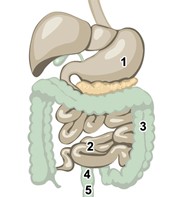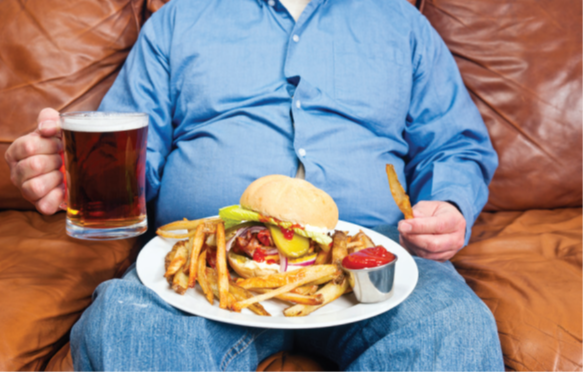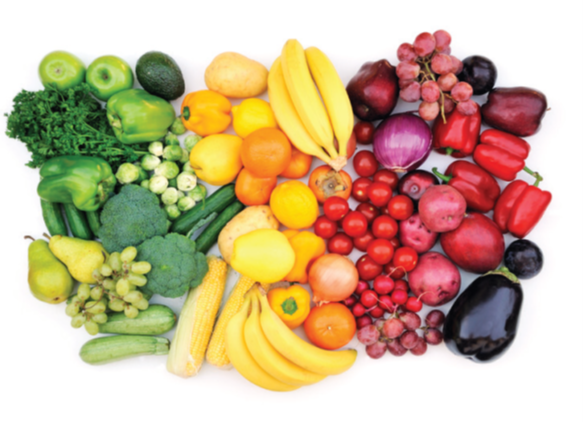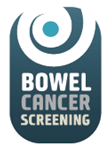Bowel cancer
What is Cancer?
The body is made up from millions of cells that are constantly dying and being replaced. Normally, cells divide in an orderly and controlled way. Cancer occurs when a cell divides and multiplies too rapidly. This produces a lump of abnormal cells known as a tumour. Tumours are either benign (non-cancerous) or malignant (cancerous). There are 200 different types of cancer and early detection can greatly increase the chances for successful treatment.
What is Bowel Cancer?
Bowel cancer, also known as colorectal cancer or colon cancer, is any cancer that affects the colon (large bowel) and rectum (back passage). If diagnosed at an early stage, bowel cancer is very treatable.
Every year in Northern Ireland 1,100 people are diagnosed and over 400 people die from bowel cancer, making it Northern Ireland’s second biggest cancer killer.
What is Bowel Cancer
Your bowel
Your bowel is part of your digestive system. The function of the digestive system is to take food into the body and to get rid of waste. The bowel is where the waste product of eating is stored until it can leave the body (stool, faeces).
1: Stomach
2: Small bowel
3: Colon
4: Rectum
5: Anus

Your Bowel
Risk Factors
You may be more at risk of developing bowel cancer if you:
- Are over 50
- Have a significant family history of bowel cancer (if so, contact your GP)
- Lead an inactive lifestyle and eat a poor diet
- Have a history of polyps (non-cancerous growths) in your bowel
- Have a longstanding bowel condition i.e Chrons disease or Colitis
- Have type II diabetes

Risk Factors
Comforting news
Most of us, at some time in our lives, will suffer from problems with our bowels. Many, less serious conditions like piles, irritable bowel syndrome and colitis share some of the same symptoms as bowel cancer. It is important to get any symptoms checked out as most symptoms will not be bowel cancer. If it is cancer related, the sooner it is treated the better.
What to look out for
An individual has more than a 9 in 10 chance of surviving the bowel cancer if it’s detected early so it’s important to familiarise yourself with the most common signs and symptoms of the disease.
The initial symptoms of bowel cancer include:
- Blood in your stools or bleeding from your rectum
- Loose and more frequent bowel movements lasting three weeks or more
- Abdominal pain or a feeling of constant bloating
- Unexplained weight loss
- Extreme tiredness for no obvious reason
- Fatigue and breathlessness
Seek advice from your GP if you have any of the symptoms above. Remember most symptoms will not be bowel cancer.

What to look out for
Reduce your risk
To help reduce your risk of bowel cancer it’s important to:
- Eat plenty of fibre. These include brown bread, brown rice and pasta and high fibre cereals such as porridge
- Eat five portions of fruit and vegetables every day. Eat a rainbow – try to eat different coloured fruit and vegetables to get a variety of vitamins and minerals
- Keep active with regular exercise. Aim for at least 30 minutes five times a week
- Keep hydrated. It’s recommended to drink 6 – 8 glasses a day to stay hydrated
- Drink within recommended alcohol limits. Men and women should not regularly drink more than 14 units of alcohol a week. Men should not regularly drink more than 3 to 4 units of alcohol a day and women no more than 2 to 3 units of alcohol a day.
- Don’t smoke
- If eligible, take part in the bowel cancer screening programme

Reduce your risk
Bowel Cancer screening
The Northern Ireland Bowel Cancer Screening programme aims to diagnose bowel cancer before symptoms appear and when the chance of successful treatment is greatest.
Why screen for Bowel Cancer?
- If bowel cancer is detected at a very early stage then treatment can be 90% successful
- This means that around 60 deaths could be prevented in Northern Ireland each year
- Screening can also pick up polyps. Polyps are clumps of cells that are not cancer but some may turn into cancer. If polyps are picked up early they can be easily removed before this happens.
Screening overview
- Men and women aged 60 to 71 are eligible for screening
- These people will receive a letter, a leaflet explaining the test and a home testing kit in the post every two years
- Recipients are asked to collect small stool samples on a special card and send the kit to a screening laboratory for examination
- If blood is found in the sample, you will be invited for more tests. Blood in your stools does not always mean cancer
- The results are issued within two weeks of sending in the test
- Around 98 in 100 people will receive a normal result
- Research shows that regular bowel cancer screening reduces the risk of dying from bowel cancer by 16%.
To find out more on the Northern Ireland Screening Programme visit

Bowel Cancer Screening
Action Cancer provides…
Early Detection
Breast screening services and health checks available from the Big Bus and Action Cancer House in Belfast.
Support Services
Complementary therapy, acupuncture, counselling, life coaching, peer mentoring; and our Positive Living Programmes are available for those impacted by cancer in order to enhance quality of life and learn coping strategies.
Education
As a local charity with a focus on cancer awareness, prevention and detection the health promotion team deliver a range of services and programmes to schools, communities and workplaces across Northern Ireland.
